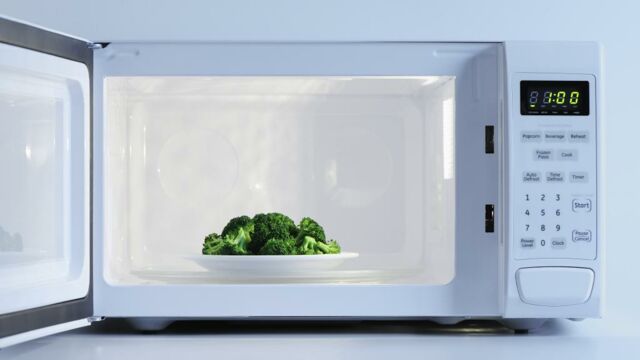Like most technologies, the microwave was designed with the goal of making our lives easier by reducing labour. However, there are still a number of people who are of the belief that using a microwaveremoves vitamins and nutrients from food. But is it unsafe to use microwaves?
Discover our latest podcast
How does it work?
Microwaves depend on radiation from water molecules in the food to heat it up. Of course, the process is more complex than that, as can be seen in this explanation on the Harvard Medical School website:
Microwave ovens cook food using waves of energy... These waves are remarkably selective, primarily affecting water and other molecules that are electrically asymmetrical. Microwaves cause these molecules to vibrate and quickly build up thermal (heat) energy.

This process can impact the vitamins and nutrients in food, but the same can be said for any food preparation process that uses heat.
The verdict?
Similar thing happens to proteins as well through a process known as ‘denaturing’. Not to be confused with the literal meaning of ‘taking out naturalness from something’, this simply means the breaking down of proteins.
Read more:
⋙ The foolproof way to cook rice in the microwave
⋙ 5 Foods You Should Never Put in the Microwave
⋙ This Is How To Clean Your Microwave In Just A Few Minutes
Again, like vitamins, applying heat to most proteins cause them to do this, not just the heat from a microwave. In fact, studies have shown that cooking vegetables causes the nutrients to leak out into the boiling water which is eventually thrown out. According to the Harvard medical website:
The cooking method that best retains nutrients is one that cooks quickly, heats food for the shortest amount of time, and uses as little liquid as possible. Microwaving meets those criteria. The microwave is a marvel of engineering, a miracle of convenience — and sometimes nutritionally advantageous to boot.















